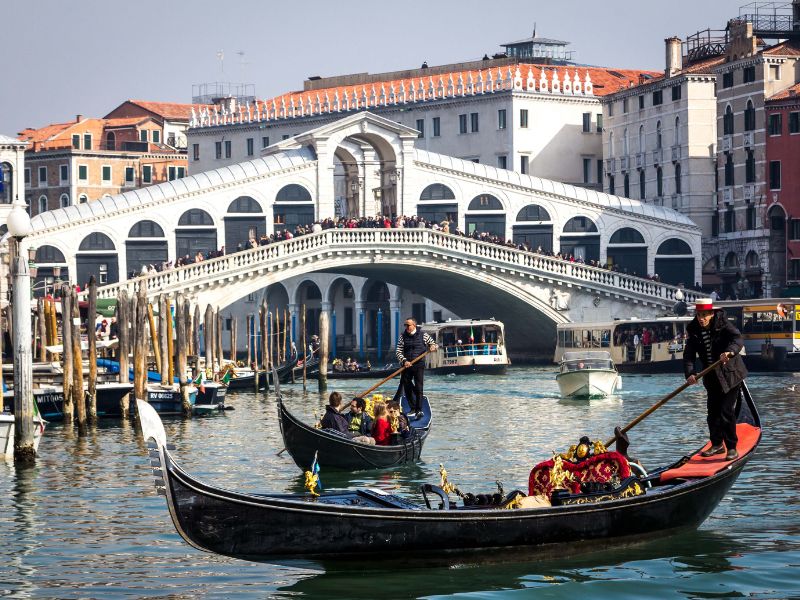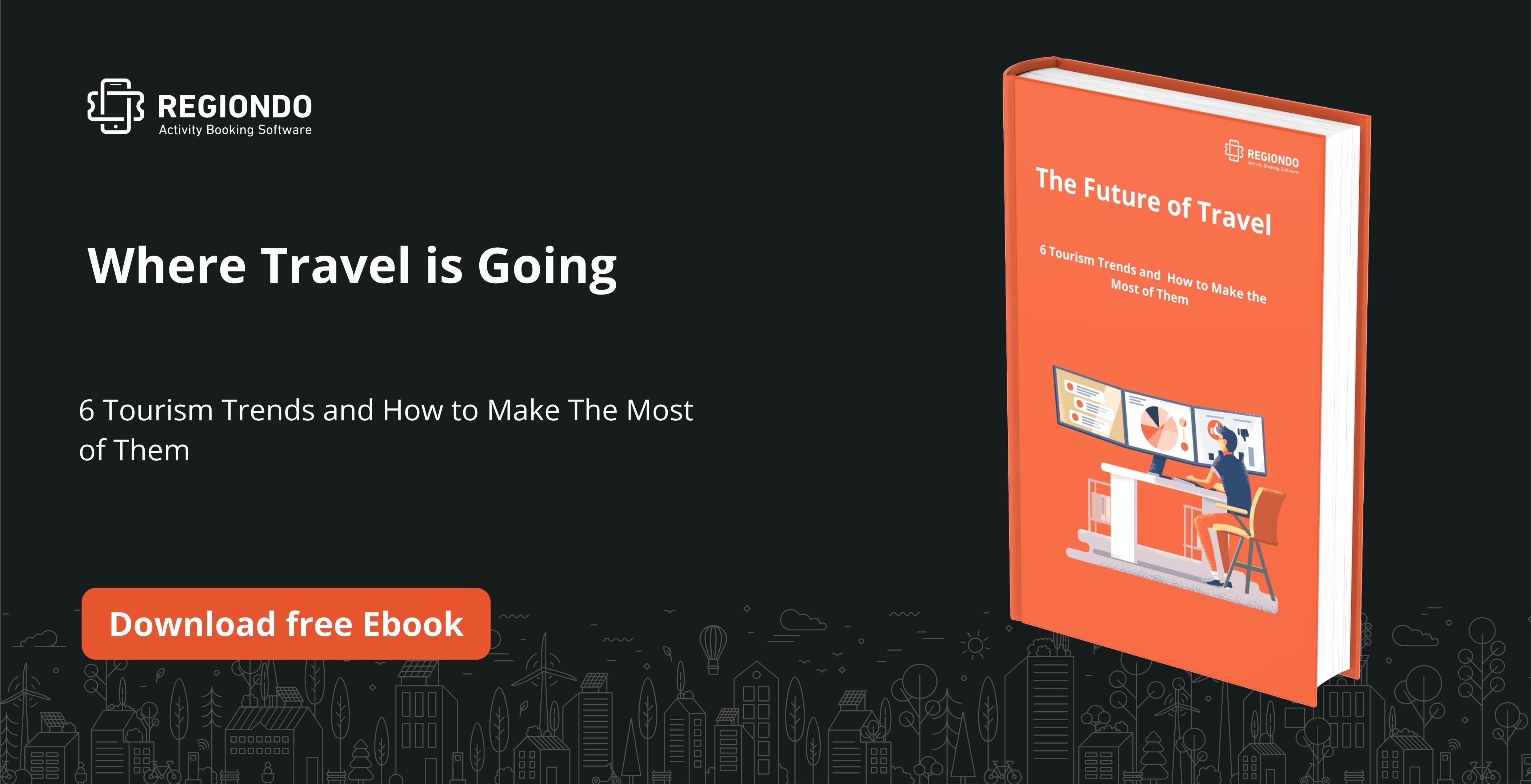It’s fairly common for tour operators in popular tourist destinations like Venice to have dual pricing or ‘’pricing discrimination’’ between locals and foreigners. However, the European Commission is changing this. Pricing discrimination or dual pricing is when ticket prices for sights and tours are determined by nationality, with foreigners paying more than locals. Some countries may be required to pay more than other countries as well.
The pricing disparity differs from country to country. In tourist destinations like Venice, foreign tickets can cost 6 to 10 times more than local prices. Cafes in Bruges charge tourists 10 percent more for chips, and food and goods are also considerably higher for tourists in cities like Rome and Sicily.
Those price disparities are huge, and more and more tourists are complaining about it. In fact, price discrimination can hurt economies in the long run because tourists are less motivated to visit those countries again in the future. This can also impact you directly as a tour operator.
So how can you tackle the issue as a tour operator? Well, simply price as fairly as you can, comply with the EU Internal Market Regulations and inspire other tour operators to do the same.
Easier said than done, we know.
Let’s go over incidents of price discrimination in the EU and look at the arguments for and against dual pricing to give you a better understanding of the laws and debates on the topic.
Price Discrimination in Venice Tourism Market

In 2015, The European Commission launched an investigation into pricing discrimination in Venice after a Belgian tourist filed a formal complaint.
The Belgian argued that tourist attractions and shops in Venice are in violation of an EU rule, by charging tourists far more than residents for almost every tourist activity (like museum admissions and basic things like using public bathrooms).
The tourist called for the European Commission to step in and implement a flat rate across the board, for everyone, tourist or not.
Italian newspaper, La Stampa, quoted the tourist as saying, “Imagine if Paris, London, and Rome did it. European treaties impose freedom of movement and equal treatment of all EU citizens. In 2003, Italy was already condemned over its museums and different prices based on nationality.”
In the formal complaint, the Belgian tourist compared the price for a tourist family day out to a family day out for residents. He reported a higher cost for visitors who paid €136 at the time, compared to a Venetian family who spent €12 for the same exact activities. It’s obviously a highly drastic price difference.
At that time:
- Tourists paid €7 for waterbus rides while residents paid €1.30
- Tourists paid €18 admission fee to get into Doge’s Palace while Venetians gained free entry
- Residents freely accessed public WiFi while tourists paid €5 for 24 hours
- Tourists paid €1.50 to use public restrooms while residents paid just 25 cents
The director of Venice public transport defended the price of its services by saying that anyone can ride the waterbus for €1.30 with a Venezia Unica card. However, the card costs €10 for locals, €20 for residents who live in the Veneto region, and €50 for tourists.
With millions of tourists coming to Venice every year, the city has a storied affair with tourists. Silvio Testa, who led a campaign to stop large cruise ships from entering Venice told La Stampa newspaper that Venice has become the new Disneyland and that price discrimination is just a way to prevent some tourists from visiting.
That latter statement is proof of the economic costs of price discrimination for any economy that survives on tourism. It should concern you as a tour operator as well.
The European Commission is investigating the complaint.
Price Discrimination in Hotels, e-Commerce, and Video Games
Furthermore, last year, the European Commission received multiple complaints from tourists regarding pricing discrimination in hotels. They are now investigating hotel accommodation agreements between the largest European tour operators: Kuoni, REWE, Thomas Cook, TUI and Meliá Hotels.
They asserted that “hotels and tour operators cannot discriminate (against) customers on the basis of their location” as that would be against EU Internal Market regulations.
They went on to say that “the agreements in question may contain clauses that discriminate between customers, based on their nationality or country of residence. As a result, customers would not be able to see the full hotel availability or book hotel rooms at the best prices.”
“This may breach EU competition rules by preventing consumers from booking hotel accommodation at better conditions offered by tour operators in other Member States simply because of the consumer’s nationality or place of residence. This would lead to the partitioning of the Single Market.”
They are looking into the customer complaints via three separate investigations of pricing discriminations for electronic products, video games, and hotel accommodation.
They state that “e-commerce should give consumers a wider choice of goods and services, as well as the opportunity to make purchases across borders. The three investigations we have opened today [February 9th, 2017] focus on practices where we suspect companies are trying to deny these benefits for consumers. More specifically, we are looking into whether these companies are breaking EU competition rules by unfairly restricting retail prices or by excluding customers from certain offers because of their nationality or location.”
So if you are a tour operator, large or small, operating within the EU, you should be aware of the impact of price discrimination on your business. If a complaint is brought forward by any of your customers, it could cost your business money and damage your reputation.
We’re sure some of you are thinking about the arguments for price discrimination. Sure, you could argue that the money made from price discrimination is used for maintenance; that foreigners make more money so they should pay more; that since entry prices are higher in other countries, they should be higher in your country; and that locals should not be prevented from seeing their country’s sights because of pricing.
A lot of people agree with those arguments. You may as well. However, not all are accurate.
Let’s dig deeper, argument by argument.
The money is used for maintenance
Maintaining cultural sights is highly important. As no one wants to see a heritage sight fall to ruins. However, in countries where price discrimination is common, it is questionable whether the extra income is used for actual maintenance of the sight.
For example, a lot of sights in places where price discrimination is rampant could do with a lot of cleaning up. They do not have trash bins to contain dirt and curb littering; or signage in foreign languages, like English, Chinese or French to help tourists. If foreigners are to be charged more, then there should be amenities that justify the costs.
If ticket revenues were used on maintenance and improvements, then the arguments for pricing discrimination would be stronger. But it is usually isn’t used for maintenance, at least not in all cases.
Locals shouldn’t get priced out
The argument that locals shouldn’t get priced out also falls short. Because the reality is that someone is always priced out.
A large proportion of populations, where pricing discrimination is rampant, are not too well off in general. Many of them struggle to afford tourist activities. For that segment of the population, any entry fee that is not free is too high.
Even free entry would not convince them to visit sights because there are often hidden costs associated with visiting. For example, they need to spend money on transport, food, and accommodation. There is also the cost of time: time spent sightseeing takes away from time spent on making money. People will always be priced out.
For example, not all French people can afford to visit the Louvre and not all Americans can afford to go to the Museum of Modern Art in New York or the Art Institute of Chicago.
Pricing discrimination helps the economy
That is not necessarily true.
Sustainable tourism should always support and grow the local economy. Pricing discrimination has an adverse effect on sustainable tourism.
For example, if you spend €25 to get into a museum, that is €25 you are not spending eating and drinking at a local restaurant. The more money one spends on sights, the less they can spend on the local economy.
You could argue that spending money on a sight is helping the economy. However, if we consider that most sights are government-run, we have no idea whether or not the money will flow back to local economies.
Conclusion
As a tour operator, it would be economically fair for you to have the same rate for both locals and foreigners. Plus, you have to be in compliance with EU Internal Market regulations. Upset tourists who are offended by your dual pricing will avoid the country and its sights in the future, which will hurt the economy in the long term. It could also hurt your business in the long term. Our advice: Set a uniform price across the board, at least among EU residents.
You might also like:
- The Rise of Bleisure Travel and How to Make the Most of it
- Health Tourism in the EU: Facts and Figures
- Virtual Reality in Travel: 9 Applications for Tours, Destinations & Activities
- 9 Tourism Trends That Will Shape the Travel Industry in 2020 and Beyond
- The Rise of Solo Travel and How to Make the Most of it
- When Numbers Matter: The Travel Statistics You Need to Know About
- The Rise of Experience Tourism and What It Means for the Leisure Industry




